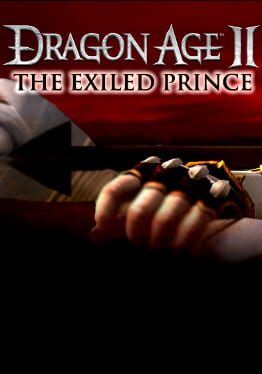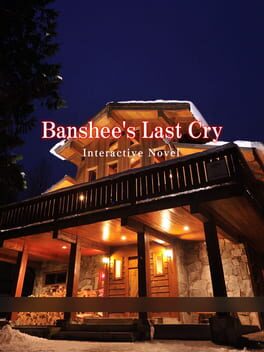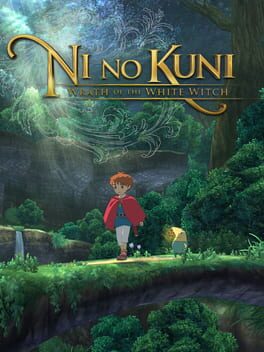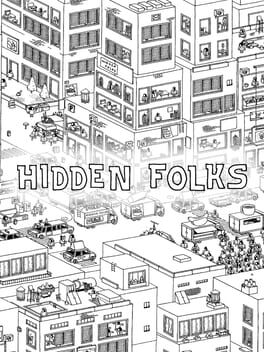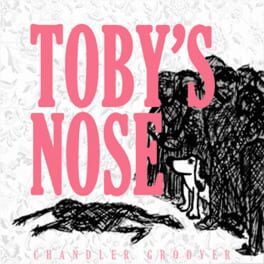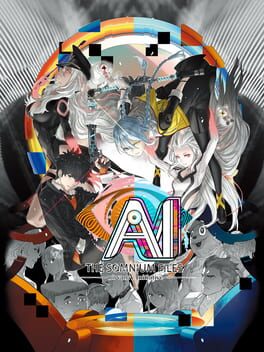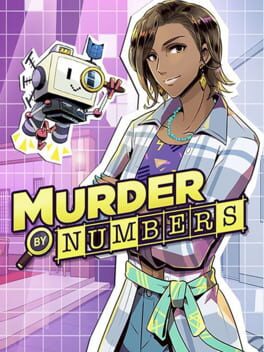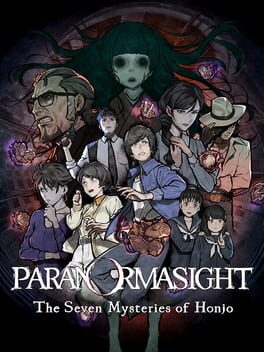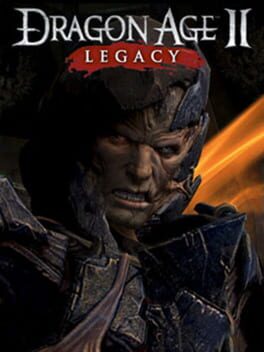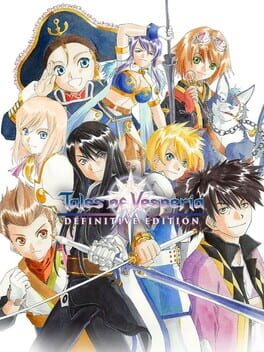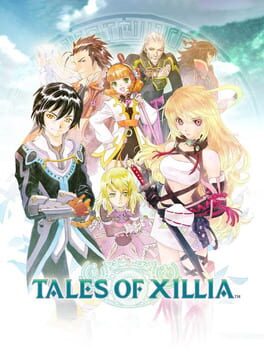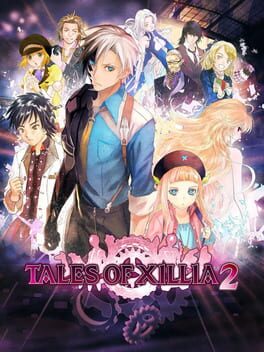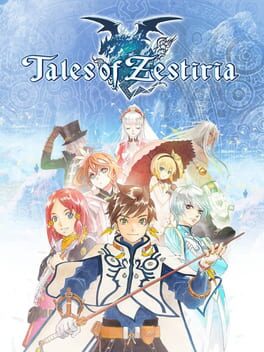bellwoods
2000
2011
2014
Played this because (a) it's a murder mystery and (b) I heard it was an influence for 999, and it certainly has a similar spirit. The game relies on being replayed. I made an incorrect deduction about who the murderer was and stumbled into a slasher horror piece. A replay knowing who they were meant that everyone was unharmed and I came out looking like a genius. There is an idea of drawing deductions from information you gained in 'bad routes' that the Zero Escape series draws on to its literal extreme. A fun, not particularly long investigation.
The iOS release makes some very odd localization choices, starting with changing kamaitachi to banshee and ending with changing the graphics/photos and setting to a ski lodge in Canada. Seems another thing it has in common with 999 is the Ship of Theseus problem--at what point does it become a different game?
The iOS release makes some very odd localization choices, starting with changing kamaitachi to banshee and ending with changing the graphics/photos and setting to a ski lodge in Canada. Seems another thing it has in common with 999 is the Ship of Theseus problem--at what point does it become a different game?
2017
Poking little guys game. You could imagine this as a beautiful search-and-find book, but they made excellent use of the game medium, turning it into a fun and very tactile puzzle experience. Basically my ideal game, and some of the interactions were quite clever. Though I wished the minimalist lines looked a little more crisp on my monitor (tried many aspect ratios).
2015
Fascinating piece, funny while also considerably darker/more serious than I expected for a game about Sherlock Holmes's dog that references Great Mouse Detective. (Violent human and animal deaths, sex work, drug use, among other things. Also, the dog says fuck.) I initially struggled with how smelling worked, and was very grateful for "sharpened" (easy) mode and the various quality-of-life mechanics, because even with it on I often missed nouns that had been implemented. And what a staggering amount there are! It's impressive how far you can explore. Great example of what can be accomplished with conceptual-map style IF.
A few of the clues are tantamount to verbal pixel hunting--you really are expected to investigate EVERY noun, and there is one place in particular where several crucial clues are gated by a noun where there is no indication it leads to what it leads to. On the bright side, Holmes has already solved the case, so you can always brute-force a solution and then play again to try and ferret out some of those details (as I did).
A few of the clues are tantamount to verbal pixel hunting--you really are expected to investigate EVERY noun, and there is one place in particular where several crucial clues are gated by a noun where there is no indication it leads to what it leads to. On the bright side, Holmes has already solved the case, so you can always brute-force a solution and then play again to try and ferret out some of those details (as I did).
2020
This is essentially a book of nonogram puzzles skinned in a flimsy detective story, set to a banger soundtrack by the same composer as Ace Attorney. You probably already know from that description if you'll like this game. Personally, I wished there had been more puzzles larger that 15 x 15 (there are only three, by my count). They were on the small side for nonograms, and often not totally legible.
Really interesting little visual novel with an excellent cast, unusual format, and a nice satisfying mystery (in the main route) that gradually clicks into place. Included many meta experiments with gameplay, some of which worked wonderfully, and some of which left me cold. Loved Harue's route in particular (I can't think of many games where I get to play as a middle-aged woman.) The jumpscares I found a little much, initially, but they trail off at the end of chapter 1. Very much worth the time and money, and I hope they make a sequel!
Near the end of Act 1, you think: "Aha! Now we're getting into the real story!" This happens three or four times before the end of the game, and none of these plot threads are fully developed. I'd say only two of the party members have full character arcs, and neither of them is Yuri, the alleged protagonist.
Nonetheless, I have hundreds of hours in this game, purely because it's fun to play. Judith is up there for "most joyful player-controlled experience" across the entire Tales series. I had a great time with the secret missions and the many bonus dungeons.
Also, there's a sidequest that involves having your dog pee on every corner of the map. Not sure what to do with that information.
Nonetheless, I have hundreds of hours in this game, purely because it's fun to play. Judith is up there for "most joyful player-controlled experience" across the entire Tales series. I had a great time with the secret missions and the many bonus dungeons.
Also, there's a sidequest that involves having your dog pee on every corner of the map. Not sure what to do with that information.
2011
This review contains spoilers
Oh, Xillia. Between its underbaked plot, baffling pro-child-marriage polemic, and habit of recycling locations but tinted green, there are many frustrations to be had here. But I just want to talk about the Milla route (or lack thereof), which is genuinely one of the most aggravating experiences I've ever had in a video game.
The game bills itself as having the first female co-protagonist, so going in not knowing much about it, I assumed this meant that you could choose your player character (Jude or Milla), and go through approximately the same story with minor variations. This is... not the case.
Partway through Act 1, Milla is seriously injured and removed from the party. You are forced to play as Jude. On the Milla route. Eventually, though, return controls to Milla--and the game, as if warning you of what is to come, asks if you would like to switch back to Milla or keep playing as Jude. If you, like me, stubbornly decide to play as Milla anyway, you're in for a rude surprise when Milla... dies. Just straight-up dies. You can now play as her while dead, missing all the actual plot events that occur while she's out.
"Man, I wish they had done this with Aerith!"--Nobody.
Luckily, she's later resurrected, in a deus ex machina for whatever the plot was that was happening offscreen. Between the introduction of Muzet, Alvin's betrayal, Jude's mental breakdown, their fight to the death, and Leia getting shot, there's a lot to catch up on. This is all conveyed to you via optional skits.
Even when you do get to play as Milla, the game doesn't really feel like it's in her perspective. Case in point: the many scenes where Milla talks to spirits, and the player is not able to see the spirits that she can see. Contrast this with Sorey's ability to see Malakhim in Zestiria--we can see characters like Mikleo or Lailah, and the humour comes from the supporting cast being unable to. Perhaps this is partly due to what feels like a rushed development schedule, rather than just not putting any thought into the character, but neither option is good.
In conclusion, Milla's "route" feels at best like a side story for players who have already completed what is clearly intended to be the actual game, Jude's "route", and I have no idea why they didn't implement things this way.
The game bills itself as having the first female co-protagonist, so going in not knowing much about it, I assumed this meant that you could choose your player character (Jude or Milla), and go through approximately the same story with minor variations. This is... not the case.
Partway through Act 1, Milla is seriously injured and removed from the party. You are forced to play as Jude. On the Milla route. Eventually, though, return controls to Milla--and the game, as if warning you of what is to come, asks if you would like to switch back to Milla or keep playing as Jude. If you, like me, stubbornly decide to play as Milla anyway, you're in for a rude surprise when Milla... dies. Just straight-up dies. You can now play as her while dead, missing all the actual plot events that occur while she's out.
"Man, I wish they had done this with Aerith!"--Nobody.
Luckily, she's later resurrected, in a deus ex machina for whatever the plot was that was happening offscreen. Between the introduction of Muzet, Alvin's betrayal, Jude's mental breakdown, their fight to the death, and Leia getting shot, there's a lot to catch up on. This is all conveyed to you via optional skits.
Even when you do get to play as Milla, the game doesn't really feel like it's in her perspective. Case in point: the many scenes where Milla talks to spirits, and the player is not able to see the spirits that she can see. Contrast this with Sorey's ability to see Malakhim in Zestiria--we can see characters like Mikleo or Lailah, and the humour comes from the supporting cast being unable to. Perhaps this is partly due to what feels like a rushed development schedule, rather than just not putting any thought into the character, but neither option is good.
In conclusion, Milla's "route" feels at best like a side story for players who have already completed what is clearly intended to be the actual game, Jude's "route", and I have no idea why they didn't implement things this way.
2012
I liked the Xillia cast much better here than in their own game, but this still felt underbaked. It's a shame, because there are some genuinely stellar moments in this one, bits where I really felt it could've been something special, but it just didn't quite deliver. The medical debt satire, Fractured Milla, the duel with Julius, the entirety of Chapter 12--all of this was great. But again, it felt very rushed, like they wanted it to be a branching game and had to settle for almost total linearity. The ending is abrupt, to say the least, and brings to mind Mass Effect 3.
The premise, which is interestingly dark, is that the PC Ludger is an agent sent to destroy timelines that diverge from the main one. As it turns out, some of these timelines are arguably better than our own: ones in which a character from the first Xillia got to live, or have alternate versions of familiar characters we come to care about. Tales as a series loves twists where there is secretly another world, the monsters are human, your enemy is the hero of another story, and so on and so forth. So I kept waiting for the other shoe to drop--but it never did. The idea that there is an objective alpha timeline--yours--is never challenged, even though there are definitely alternate Ludgers in alternate timelines who are also being sent to destroy divergence catalysts.
The premise, which is interestingly dark, is that the PC Ludger is an agent sent to destroy timelines that diverge from the main one. As it turns out, some of these timelines are arguably better than our own: ones in which a character from the first Xillia got to live, or have alternate versions of familiar characters we come to care about. Tales as a series loves twists where there is secretly another world, the monsters are human, your enemy is the hero of another story, and so on and so forth. So I kept waiting for the other shoe to drop--but it never did. The idea that there is an objective alpha timeline--yours--is never challenged, even though there are definitely alternate Ludgers in alternate timelines who are also being sent to destroy divergence catalysts.
2015
This review contains spoilers
This game has a divisive reputation among Tales fans, to say the least, so I did my best to come into Zestiria with an open mind, but I can't say I came away with a positive impression.
I was mainly interested in playing this as a companion to Tales of Berseria, Zestiria's prequel. Berseria's ending is bittersweet, leaving open the hope that someone can fix the world's fate in the future, i.e. the plot of Zestiria. If you want to follow up on these unresolved threads, it seems reasonable to play these games in chronological order.
Unfortunately, after Berseria, the themes of this game left a bad taste in my mouth. Berseria does a lot to humanize demons, treating generic fantasy enemies as people with inner lives. Zestiria plays the same fantasy tropes straight: while it might seem happier that Sorey can "purify" hellions rather than killing them (usually...), the hellions we see are either mindless monsters or innately wicked. It seems like none of the lessons from Velvet's time really stuck around in this world.
Furthermore, Artorius, Berseria's Shepherd, is... well... a fascist. He's obsessed with moral purity, blind obedience to a chosen hero, submission of the individual to the many, and the triumph of "reason" over emotion. His ideal society is one purged of social undesirables. And the Abbey is always depicted in stark shades of white. Berseria makes you root for its villain protagonists by saying "Hey, have you noticed that the hero's journey has some fascist subtext?" And granted, it's a critique of an entire genre, not just Zestiria. But after Artorius, I found it difficult to turn that interpretation off and invest myself in Sorey's journey at face value, as Zestiria's party try to keep Sorey from being tainted by negative emotions so he can stay pure, as he faces conflicts like "the ungrateful populace not immediately accepting his awesome powers and chosen one status". Those hero tropes (the ones that other game said were fascist) are played completely straight. It ends up coming off like Zestiria only exists so that Berseria can subvert it.
But I don't know that I would recommend playing Zestiria first, either. The beautiful environments and fun dungeon designs are plagued by clunky battle mechanics, sluggish AI, and perpetual camera issues. The cast are about as zesty as cornflakes--I cared about Edna and Zaveid by virtue of their connection to Eizen, but that's about it. Arguably this is as close as it comes to a Tales game with a canon gay relationship, and that still didn't save it. The plot is essentially Stranger in a Strange Land, if, when the protagonist arrived to enlighten humanity, the Martians all showed up like "Hey, you shouldn't give psychic powers to Alisha, you should give them to Rose. We all like Rose much better than Alisha. And she's smarter, too!" He couldn't even be bothered to die at the end.
I was mainly interested in playing this as a companion to Tales of Berseria, Zestiria's prequel. Berseria's ending is bittersweet, leaving open the hope that someone can fix the world's fate in the future, i.e. the plot of Zestiria. If you want to follow up on these unresolved threads, it seems reasonable to play these games in chronological order.
Unfortunately, after Berseria, the themes of this game left a bad taste in my mouth. Berseria does a lot to humanize demons, treating generic fantasy enemies as people with inner lives. Zestiria plays the same fantasy tropes straight: while it might seem happier that Sorey can "purify" hellions rather than killing them (usually...), the hellions we see are either mindless monsters or innately wicked. It seems like none of the lessons from Velvet's time really stuck around in this world.
Furthermore, Artorius, Berseria's Shepherd, is... well... a fascist. He's obsessed with moral purity, blind obedience to a chosen hero, submission of the individual to the many, and the triumph of "reason" over emotion. His ideal society is one purged of social undesirables. And the Abbey is always depicted in stark shades of white. Berseria makes you root for its villain protagonists by saying "Hey, have you noticed that the hero's journey has some fascist subtext?" And granted, it's a critique of an entire genre, not just Zestiria. But after Artorius, I found it difficult to turn that interpretation off and invest myself in Sorey's journey at face value, as Zestiria's party try to keep Sorey from being tainted by negative emotions so he can stay pure, as he faces conflicts like "the ungrateful populace not immediately accepting his awesome powers and chosen one status". Those hero tropes (the ones that other game said were fascist) are played completely straight. It ends up coming off like Zestiria only exists so that Berseria can subvert it.
But I don't know that I would recommend playing Zestiria first, either. The beautiful environments and fun dungeon designs are plagued by clunky battle mechanics, sluggish AI, and perpetual camera issues. The cast are about as zesty as cornflakes--I cared about Edna and Zaveid by virtue of their connection to Eizen, but that's about it. Arguably this is as close as it comes to a Tales game with a canon gay relationship, and that still didn't save it. The plot is essentially Stranger in a Strange Land, if, when the protagonist arrived to enlighten humanity, the Martians all showed up like "Hey, you shouldn't give psychic powers to Alisha, you should give them to Rose. We all like Rose much better than Alisha. And she's smarter, too!" He couldn't even be bothered to die at the end.
